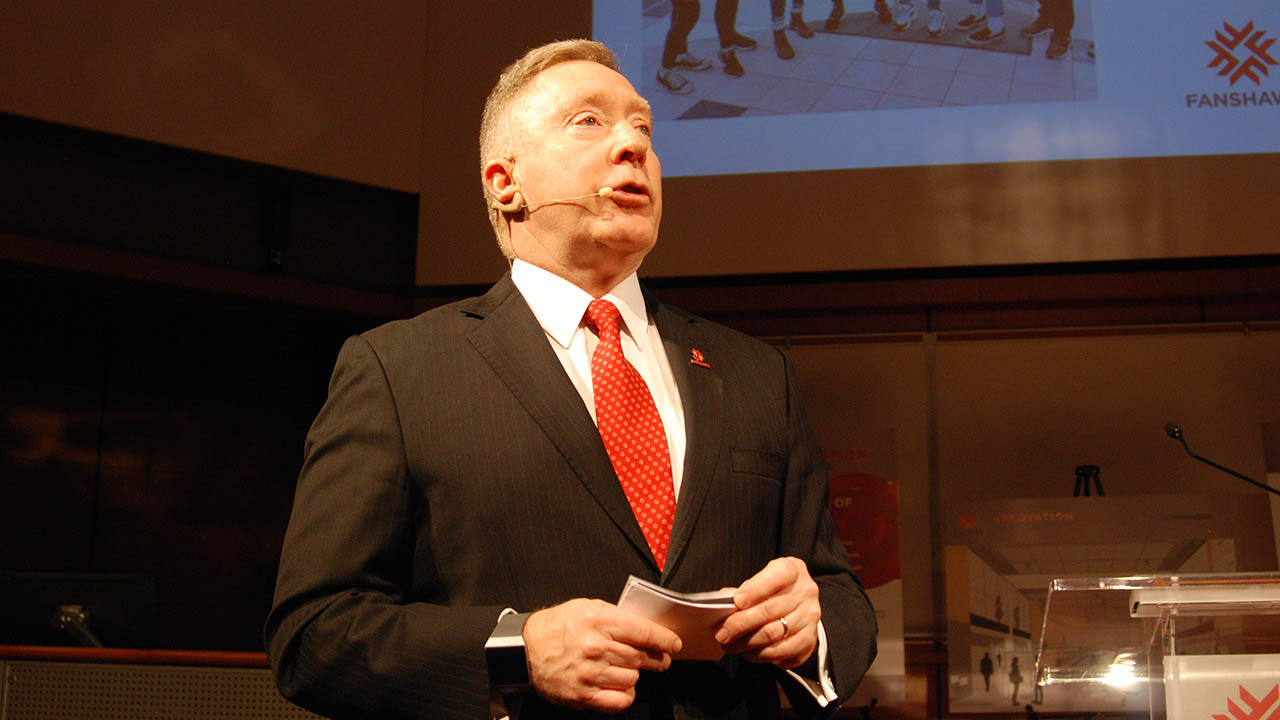Fanshawe's five-year plan revealed
 CREDIT: EMILY STEWART
CREDIT: EMILY STEWARTFanshawe College President Peter Devlin updated faculty and staff on the College's achievements and plans for the future up until 2025.
Fanshawe College’s new strategic goals from now to 2025 were discussed at the Fanshawe College President’s Update Meeting.
College staff and faculty filled the Alumni Lecture Theatre as part of their Feb. 19 morning routine to listen to President Peter Devlin announce Fanshawe’s future.
“We make this learning come to life in such a rich way because of all of you and the rest of the gang, the 3,000 plus folks that work at Fanshawe,” Devlin said. “Shared values, shared trust, shared ambition is all central to what we do and what we’ll be doing as we look towards a new set of strategic goals.”
The four strategic goals for 2020 to 2025 are to provide exceptional student learning, grow enrolment to meet the needs of the labour market and students, enhance the College’s organizational capacity, and focus on financial health for future development.
Innovation Village and the project’s job skills for the future and signature innovative learning experiences (SILEx) are part of the strategy to provide exceptional learning experiences to students. That goal also includes a mental health strategy and the Here for You campaign.
The College plans to maintain the domestic enrolment rate, while implementing an apprenticeship strategy and growing the international enrolment rate. Fanshawe will also support Indigenous students with their Indigenous Action Plan.
Devlin said completing a data strategy, along with implementing an integrated solutions project and a procedure for capital requests will improve the organizational capacity. Boosting the on-campus culture for faculty and staff, in particular their wellness, are also part of the plan.
“When you are happy and fulfilled, Fanshawe rocks and kills it,” he said.
Fanshawe also plans to build alternate revenue, grow Fanshawe internationally and expand the donor base.
Devlin also talked about managing the college’s space to meet the 80 per cent optimal utilization rate. Fanshawe’s rate can go from 87 to 92 per cent and the downtown School of Tourism, Hospitality, and Culinary Arts campus especially deals with spacing issues. Another space issue involves managing student timetables. The College aims to create more than 25 classrooms over the next five years to tackle this problem, with most of the classrooms on the Oxford Street campus.
Innovation Village is a $55 million project. Devlin announced that $2.5 million in municipal funding for Innovation Village was approved during London City Hall’s multi-year budget discussions. The full budget, which covers the years 2020 to 2023, will be finalized March 2.
Devlin acknowledged that several students already experience SILEx and job skills for the future in their programs of study. Hon. bachelor of interior design (BID) professor Natalie Rowe and BID student Christine Belanger were called up to talk about their experience with McCormick Home.
Rowe said her third-year studio design students spent time in Mc- Cormick Home and interacted with residents and staff to determine interior design issues of the present and future for those living with dementia and then create design solutions.
Devlin finished his update by announcing Fanshawe raised $136,777 for the United Way for Fanshawe’s 2019 campaign.















